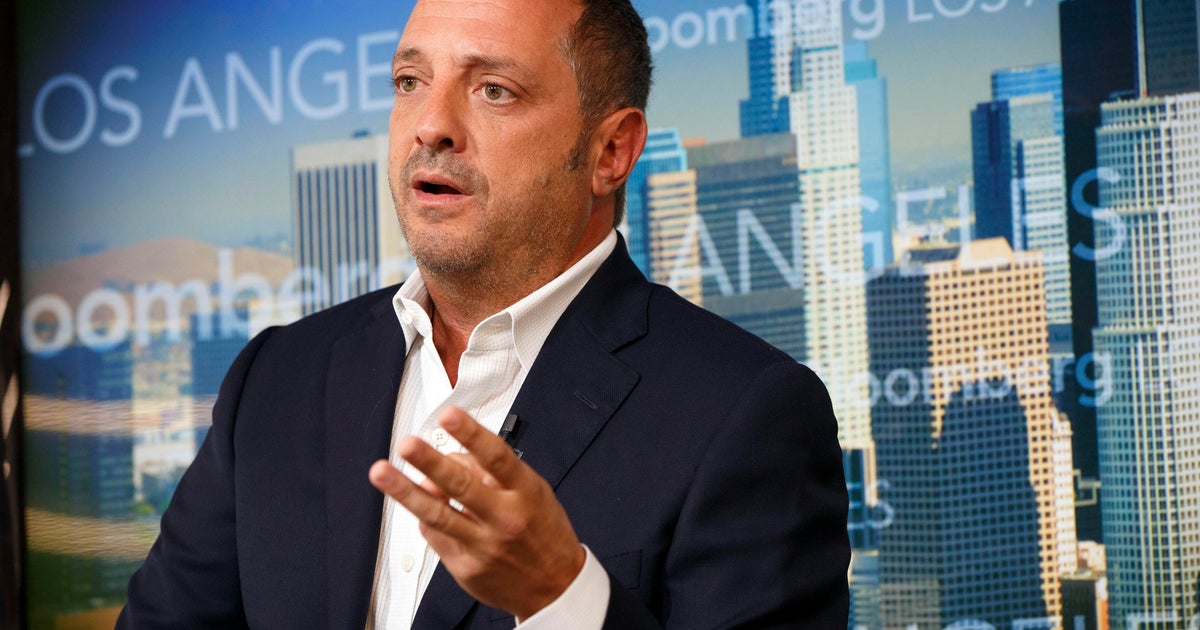Unions and gig drivers sue to overturn California's Proposition 22
Drivers for Uber, Lyft and other app-based services filed a lawsuit Tuesday to overturn a California ballot initiative that classifies them as independent contractors instead of employees eligible for benefits and job protections.
The lawsuit filed with the California Supreme Court contends that Proposition 22 is unconstitutional because it limits the power of the state legislature to grant workers the right to organize and excludes drivers from eligibility for workers' compensation.
The measure, which was passed in November with 58% support, was the most expensive in state history. DoorDash, Lyft, Uber and other app-based companies spent $200 million in support of it. Labor unions, which joined drivers in the lawsuit, spent about $20 million to oppose the measure.
"Prop 22 doesn't just fail our state rideshare drivers, it fails the basic test of following our state constitution," said Bob Schoonover of the SEIU union. "The law as written by Uber and Lyft denies drivers rights under the law in California and makes it nearly impossible for lawmakers to fix these problems."
"Every day, rideshare drivers like me struggle to make ends meet because companies like Uber and Lyft prioritize corporate profits over our wellbeing," Saori Okawa, a plaintiff in the suit, said in a statement. "I know it's up to the people we elect to make our laws, not wealthy executives who profit from our labor."
The Yes On 22 coalition, a group of organizations backing the ballot measure, called the lawsuit "meritless."
"Nearly 10 million California voters — including the vast majority of app-based drivers — passed Prop 22 to protect driver independence, while providing historic new protections," Jim Pyatt, an Uber driver and spokesperson for the coalition, said in a statement. "Meritless lawsuits that seek to undermine the clear democratic will of the people do not stand up to scrutiny in the courts."
Uber did not immediately respond to a request for comment, while Lyft referred a query to the Yes on 22 coalition.
A long legal battle
The lawsuit is the latest chapter in a multi-year fight between high-tech gig companies and labor rights groups. Gig companies have held they are exempt from California's landmark labor law AB5, which Democrats in the legislature passed in 2019 and which made it more difficult to classify certain workers as independent contractors.
That law expanded a California Supreme Court ruling that would have required gig platforms to provide drivers with protections like minimum wage, overtime pay, health insurance and reimbursement for expenses.
Proposition 22 was written by Uber and Lyft and supported by DoorDash, Postmates and Instacart. When the ballot measure passed last November, proponents said it showed voters' support for the current system, which allows drivers some measure of flexibility to set their own schedules and keeps gig services relatively affordable for customers. Opponents accused the gig companies of buying their own law, and vowed to keep fighting.
Under Proposition 22, drivers remain independent contractors exempt from those requirements, but do receive some "alternative benefits," including a guaranteed minimum wage and subsidies for health insurance if they average 25 hours of work a week. The proposition includes a provision that requires a seven-eighths majority to overturn or change the measure in the future.
CBS News' Irina Ivanova contributed reporting.



